Yoko Ogawa, Revenge (1998)
Translated from the Japanese by Stephen Snyder (2013)
 I’ve read two of Yoko Ogawa’s books previously (see my thoughts on Hotel Iris and The Diving Pool); each time, I have been struck by how she anatomises the dark psyches of her characters. Revenge is a little different: a collection of eleven linked stories, it unsettles more through the overall effect of the tales as a composite.
I’ve read two of Yoko Ogawa’s books previously (see my thoughts on Hotel Iris and The Diving Pool); each time, I have been struck by how she anatomises the dark psyches of her characters. Revenge is a little different: a collection of eleven linked stories, it unsettles more through the overall effect of the tales as a composite.
Revenge begins with ‘Afternoon at the Bakery’, whose narrator goes to buy two strawberry shortcakes; a conversation with someone from the neighbouring shop reveals that the narrator is doing this in memory of her six-year-old son, whom she found dead in a refrigerator. This is how Ogawa’s stories work: mundane details are shown to have dark, sometimes even absurd, underpinnings.
‘Afternoon at the Bakery’ ends with its narrator discovering a young woman crying in the bakery’s kitchen. This young woman reappears in the second tale’s, ‘Fruit Juice’, when she invites that story’s narrator, a boy from her school, to go with her as moral support to a meal with the father she is about to meet for the first time. Strawberry cake is served is served at this meal; by story’s end, we not only know why the young woman is crying as she sits in her kitchen, we also anticipate with dismay what her reaction to the current customer’s order is likely to be.
As Ogawa’s collection continues, more links emerge between the stories: at first, isolated details reappear; then characters seem to recur (the identities of some remain sketchy, so you can’t be entirely sure whether or not character X mentioned in one story is also character Y from another); one story in Revenge may appear to be fictional in the reality of another; images and events are repeated or echoed in strange new contexts. The relative straightforwardness of Ogawa’s prose (and Stephen Snyder’s effectively matter-of-fact translation) only heightens the sense of being caught up in a world where it’s uncertain which is worse: the thought that all the details of reality won’t cohere, or the thought that they might. Revenge is one of those story collections that works, and is best appreciated, as a complete whole; it’s also one that stays in the mind long after reading.
Karl Ove Knausgaard, A Man in Love: My Struggle, Book 2 (2009)
Translated from the Norwegian by Don Bartlett (2013)
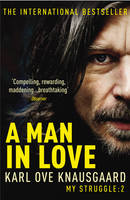 Where Volume 1 of Karl Ove Knausgaard’s My Struggle focused on its author’s adolescence and reaction to his father’s death, Volume 2 chronicles the period when Knausgaard left his first wife and moved to Sweden, where he fell in love with Linda, and examines his life as a husband and father. Reading A Man in Love has been a strange experience because, while the general palette of the first book remains – the dense treatment of everyday minutiae, punctuated by reflections on life and art – some quality that made A Death in the Family feel transcendent to me is missing.
Where Volume 1 of Karl Ove Knausgaard’s My Struggle focused on its author’s adolescence and reaction to his father’s death, Volume 2 chronicles the period when Knausgaard left his first wife and moved to Sweden, where he fell in love with Linda, and examines his life as a husband and father. Reading A Man in Love has been a strange experience because, while the general palette of the first book remains – the dense treatment of everyday minutiae, punctuated by reflections on life and art – some quality that made A Death in the Family feel transcendent to me is missing.
Knausgaard takes up his key concerns from the first volume: that he feels preoccupied by the business of everyday life when what he really wants (needs) to do is write; and that he is more deeply moved by contemplating art and the natural world than by those closest to him. In this volume, he also talks more about how fatherhood affects his sense of masculinity; feeling constrained by Swedish society; and how the heady rush of falling in love with Linda didn’t last.
Don Barlett’s translation is as fine as ever, but A Man in Love doesn’t touch me as deeply as its predecessor did. When I read A Death in the Family, I could feel the clash of Knausgaard’s emotions rising off the page; with this book, that clash is still on the page, but it stays there. To me, A Death in the Family felt like something that Knausgaard needed to write in order to work through that part of his life; A Man in Love is good enough as far as it goes, but doesn’t have that same sense of urgency.
Hubert Mingarelli, A Meal in Winter (2012)
Translated from the French by Sam Taylor (2013)
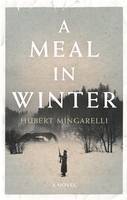 Hubert Mingarelli is a prolific author in his native France, but A Meal in Winter is the first of his books to appear in English. It’s a novella narrated by one of three German guards who are sent out to retrieve an escaped Jewish prisoner. On their way back to the prison camp, the guards and their captive stop off in an abandoned house, and start to prepare a meal of soup. When a Pole walking past the house also seeks shelter, his raw anti-Semitism leads the guards to question what they’re about to do.
Hubert Mingarelli is a prolific author in his native France, but A Meal in Winter is the first of his books to appear in English. It’s a novella narrated by one of three German guards who are sent out to retrieve an escaped Jewish prisoner. On their way back to the prison camp, the guards and their captive stop off in an abandoned house, and start to prepare a meal of soup. When a Pole walking past the house also seeks shelter, his raw anti-Semitism leads the guards to question what they’re about to do.
With A Meal in Winter being so short, the stage is set for a tight, intense piece of fiction. In some ways, this is exactly what we get: Mingarelli strips out most of the historical detail, thereby closing the distance between reader and book. The characters’ world is not ‘World War Two’ understood as a period of history; their world is this journey, this landscape, this house, and we are there with them.
It doesn’t seem quite right, though, to say that we come to empathise with the guards as the novella progresses. It’s more that we see the contours of their worldview, and how that is challenged by their experiences; empathy at a further remove, perhaps. But I can’t shake the feeling that the full intensity of this situation doesn’t quite come through the sparseness of Mingarelli’s prose (or Sam Taylor’s translation). For me, A Meal in Winter is almost there… but only almost.
***
What of these books’ chances on the IFFP shortlist? Even though the Knausgaard disappointed me, I will be extremely surprised if it doesn’t make the shortlist (though I don’t expect it to be my preferred winner). I would be happy to see Ogawa’s book on the shortlist, and suspect it has a good chance. The Mingarelli, I don’t know: it didn’t really work well enough for me to want to see it shortlisted, but it has been better received in the reviews I’ve seen, so it may just be a book that didn’t click with me.
This post is part of a series on the 2014 Independent Foreign Fiction Prize.
Like this:
Like Loading...
 I have a new review up at Shiny New Books, looking at Kirsty Logan‘s debut story collection The Rental Heart, from Salt Publishing. This is a lovely set of stories, the kind of lush fantasy you can file alongside Lucy Wood and Jess Richards.
I have a new review up at Shiny New Books, looking at Kirsty Logan‘s debut story collection The Rental Heart, from Salt Publishing. This is a lovely set of stories, the kind of lush fantasy you can file alongside Lucy Wood and Jess Richards.


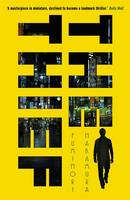
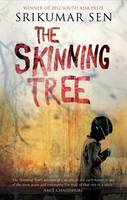

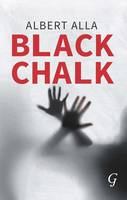
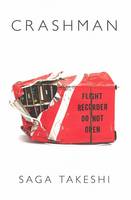

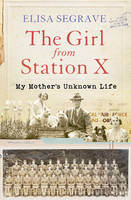
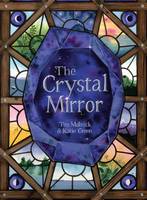
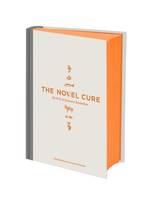
Recent Comments